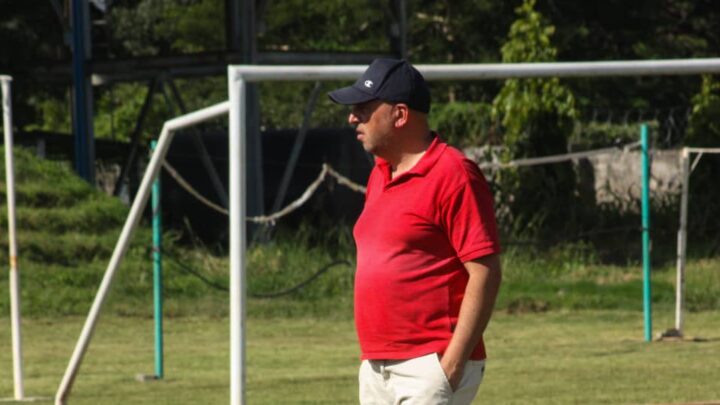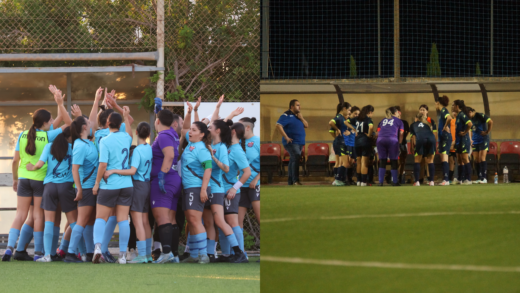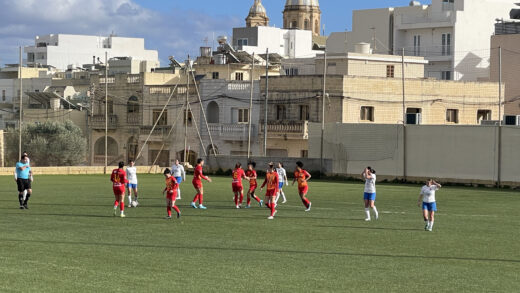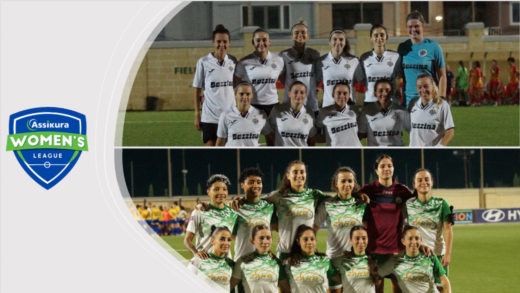Babak Afshar’s start in football dates back to 2007 where he built his own agency, Sports Supreme. His successful launch led him to transition from player agent to club owner with Estonian side Tartu JK Tammeka in 2009. There he spent five years managing the club alongside his wife, during which they had over four hundred players, with both the senior men’s and women’s teams competing in the topflight of Estonia and forming part of the national teams. This besides also having a strong youth academy.
Since then, he has had experiences scouting in mainland Europe including Germany, but also expanded his reach in countries like Kyrgyzstan, Iran and Nigeria. He has scouted for a long list of clubs, including Slavia Prague and local club Swieqi United.
The Sporting Fan sat down with Afshar to understand how his experiences have shaped how he approaches scouting today. We also discussed the hurdles involved in scouting players where the visibility of the leagues is lower, dealing with limited resources and pushing clubs beyond comfort zones in search of finding their next star signing.
Beginnings and Specialisation
Eleanor Saliba (ES): Can you give a brief overview of your beginnings in football and how it led to your role today?
Babak Afshar (BA): I started my own agency in 2007, Sports Supreme, but in 2009 I got the opportunity to lead the Estonian club Tartu JK Tammeka, alongside my wife for five years. There we had a strong number of players, with both men’s and women’s teams in the top division. The way we operated pushed the level of the league and in fact it was a time where the Estonian national team reached its peak. We faced many hurdles because Estonia has only 1.5 million people so it is a relatively small country, so there was a lack of belief that the country could produce major talents. However, together we showed that population is not a problem, that you can improve and compete with the best.
Because I am half Iranian, I also had some contacts in Iran and then moved into Rah Ahan Yazdan FC as CEO, where we had fantastic few years. We were bringing in players from countries like Uzbekistan and Kyrgyzstan. That was also when I was convinced to go to Africa for the first time and since then I have also been working to bring players from there into these leagues and to Europe. We have had some great success stories too.
ES: What would you say that your focus has become in scouting? Is it mainly to identify young talent or do you also have clubs asking you to find them established players that fit a certain profile?
BA: I would say that with experience you can go into many areas of scouting, but often you choose a specialization and as well must consider what is financially attractive. Most European clubs are searching for players that they can develop, and so that means that the target is on players between the ages of seventeen and a half, to nineteen. I would say that I focus mainly on outfield players. I have no experience in scouting goalkeepers because you need a specific skillset for that, which I have not gotten into. In the same way, although I have some experience in the women’s game because of the time with Tartu JK Tammeka and also some scouting for German clubs, I have not been involved in the women’s game for as long as the men’s, so generally focus on the latter.
The Scouting Lens
ES: Can you give an insight into how a scout looks at a game of football or a player on the pitch, to decide who has potential or not?
BA: There’s two ways, which depends on the target. In some cases, for example in Europe, you may already know a bit about a player because maybe you have some data and news articles. In that case then you go to watch a match to analyse the player specifically.
In another scenario, it may be that you are going to find players in a region. So, for example you decide to go to watch a match in Africa where you are watching all twenty-two players (maybe besides the goalkeepers). In this scenario you generally do not get ninety minutes, because a lot of the players are being substituted, so they maybe get 45 to 60 minutes. You have a snapshot of them and in that point you write down their strengths and weaknesses so you start building a background. Following that initial match, you look a bit deeper to see if there is stability in your observations over a number of matches or not.
ES: Would you say that there are differences in what you look for in players that are playing different positions, for example a defender as opposed to a midfielder?
BA: Nowadays, in modern European football the positions have changed a lot. Twenty years ago it was very rigid, for example if you are looking for a defender then you would solely focus on their defending ability and maybe consider their ability to attack a corner. Nowadays they have to anticipate, play from the back etc.
In my eyes there is too much focus on athletics because everyone is trying to play the same style of football. It makes it very difficult for players who are smaller. In all honesty I think it is very difficult to find a Messi for example, because he is not a typical role model that the football market is searching. It is a problem of clubs that do not define a certain style of play and what they want each player to do in a position. If these characteristics are defined by the club for each position, then it makes it easier for the scout.
However, because the focus is mostly athletic, then you try to find players who are open to versatility and can do many things in one step. So, you are looking at who has the potential to develop irrespective of where they are playing on the pitch. You look at their pace, reactions, but even more importantly you look at what needs to be improved. So, for example maybe they need better physicality or their intensity needs to be better. In most cases, because clubs want younger players to develop, what is really relevant is whether the weaknesses can be improved.
ES: Besides going to watch the matches and perhaps taking down notes based on what you see, do you also use some technological tools to be able to capture important details, especially considering the different regions where you scout?
BA: Yes, in Europe, Asia or even the Americas where there are broadcasts it is easier to double check players and also there are many software solutions on the market like InStat or Wyscout, you name it, which as an external you can look at. If you are working internally with a professional club then you have other methodologies to measure things, including GPS data and so on.
For example, if you are looking at a player from Estonia, you look at the data to see if it is interesting, but you must see the data together with the person live in a match. One does not work without the other. Then you also get some background to have a complete picture to decide whether you will suggest the player or not.
Scouting And The Importance of Visibility
ES: In cases where you are scouting in leagues where not much data is available or perhaps there are no broadcasts, how do you decide whether to go somewhere or not?
BA: If you are an independent scout where you have your own agency, you either go in a region where no one is or where everyone is. However, you are not going into countries where they are in between, where there is nothing. To take for example women’s football, I know there are African countries where the teams are pretty good so I would go there. However, to get a plane into Zambia is more difficult so most scouts would not do that unless a club really advises or wants you to do that.
On the other hand, for example in Germany many scouts will try to get players from the neighbouring countries because it is easy, so they go to Belgium, Austria and so on. Everyone is there so it is unlikely to find someone that no one has seen. So perhaps if you want to find players in Europe, in that case you try to go to the Baltics or Scandinavian countries, where perhaps there are not so many scouts. In my case, I go to Africa and Asia because most scouts are not going there.
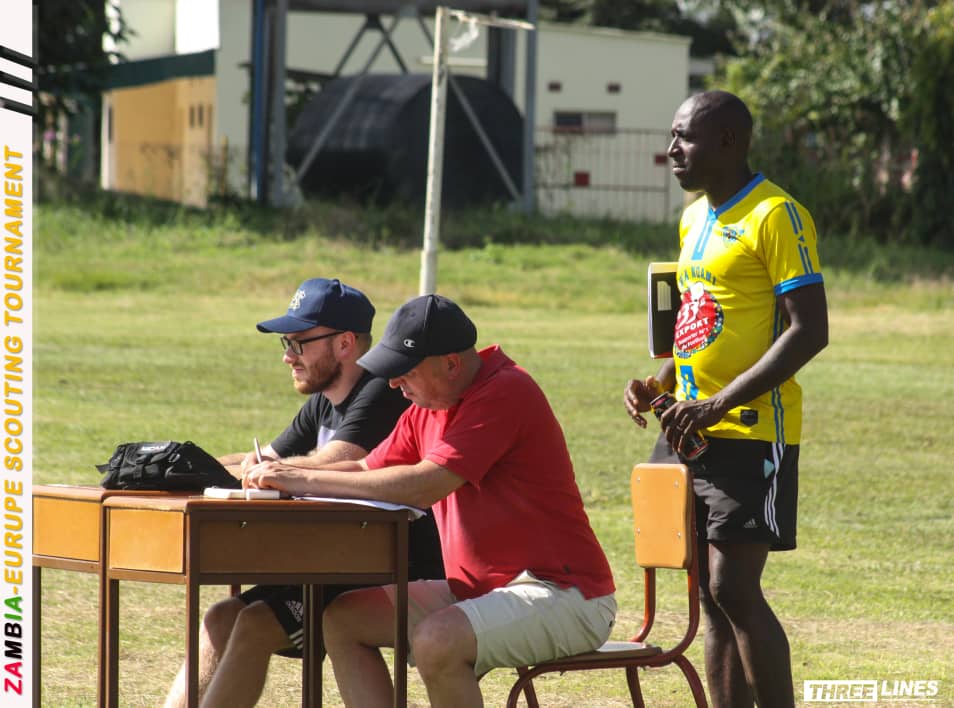
ES: From the flipside, I would say for example in Malta there is some local broadcasting, but we have low visibility of our leagues in comparison to the top leagues in Europe like Bundesliga, Premier League, Women’s Super League, Serie A and so on. How can nations improve the visibility so that scouts are more likely to find players?
BA: I would say videotaping, but there must be some cooperation, maybe from the football federation with some companies like Wyscout etc., who are showing these videos to the public. That gives scouts a taste of that league. If statistics are also involved, then it helps a lot to understand more. You have to remember, if a scout is in Germany and searching for players in neighbouring countries, they can get a car and pass through four or five games on the way. If they are coming to Malta, they have to get a plane solely for that purpose. So, there must be something that makes it attractive for them to do that.
In most cases where there is limited visibility then they are looking at the national team because they’re thinking that those players must be the best ones so they may be good to take into, for example, Austria. However, if they are not coming to watch a player who is in the local league, then they may miss out on some players who could fit into their system, who do not necessarily fit into the system of the national team.
I think especially for scouts who are looking for these younger players to be developed, then probably it is very important to have this not just for the first teams, but especially for the U16 and U19 levels. I saw this with Estonia, the sooner you have these younger players (sixteen) move into a professional club in central Europe or wherever, the bigger the chance for the player to reach that potential and then you see the improvement in the national teams and so on.
Assessing Personality & The Time Spent Scouting a Player
ES: How relevant is an assessment into the player’s character and personality when deciding whether a player could succeed in a different country and league?
BA: Initially you start by looking at the footballing ability, but if that is interesting of course then you look at their communication and understand their background. That brings you into the question of how this person can adapt. In Europe, it is not a problem because there are similar mentalities and cultures, but if you are going to for example Africa it is difficult to assess how a player will adapt. Ideally, they should be supported in this while they are still in Africa. In a perfect world, someone from Europe should have taught them for half a year about the European way of doing things including things like food, behaviour and what to expect from Europe in general, because the culture is very different.
You have these talks with them and also with the parents. However, at the end of the day the success of that is in how these players are being supported when they are in Europe. Giving a player a key to an apartment and telling them the time of their next training session is not enough. Imagine being in a country where the food is nothing like you are used to and even further if you are also of a different race. It is easy to feel like an outsider, so you need that support to adapt and to be allowed the time to do so.
Most of the time, when it is not a success, it is because no one took care of these players. Football is universal, players can adapt, but they need support in the small things that affect everyday life. It is not only about the player, but also a question of whether the club has the capacity and patience to give them the six months they need to adapt.
So, if you are a Maltese club looking to bring in these players and develop talent, then you need to support them and develop them not for the level of Malta, but to be able to compete in the top leagues. The same goes for the younger Maltese players, you need to develop them for the high level expected in the big leagues in Europe because that is the target level you want to compete against. In doing so, you improve the Maltese league, and it also means that you have more players who go to the top leagues who will then bring that experience into the national team and so on. You need to see the complete picture.
ES: For how long do you usually look at a player before deciding that this is someone you can take on?
BA: In my eyes the decision comes pretty fast. I think within two or three matches you already have a good understanding. Whether that player will fit into a particular system or club is a different story, because if you have a profile that you want to fit into then it is a different thing. Of course, for the player they may be lucky to have the three best performances in those three matches you watch, or they may be completely unlucky to play poorer or against really difficult opposition where they did not get to show their strengths. I may have missed on great players because of, for example, them not playing because they are tired from a previous match. This is perhaps unfair but that is the reality of scouting. However, as a scout you have to work with that snapshot.
Getting Deals Done & The Difference Between Male and Female Players
ES: Let’s say you identify a player who you think can transfer to a new club. How do you go about proposing them to the club?
BA: Here is where you need to have a fantastic relationship with the club, especially depending on from where you are bringing this player. You need to know which markets are open and you need to have good trust between you and the club. For example, it is difficult to bring in players from Africa directly to Germany if they are not an already national team player. This is because the market is very conservative and wants players who are ready and will easily integrate.
The reality is that showing a ten-minute video clip is not enough, everyone can look great in that. You need ninety-minute games, two or three of them. You need clubs with the capacity and interest to watch these games. This would be the ideal, however most clubs do not have the time, most do not even have scouts. So, in that case you try to build a report of strengths and weaknesses, by cutting clips yourself from these matches. I think the weaknesses are more important because then you know whether they can be improved or not. If they were a perfect player, then they would not be where they are in that stage of their career.
In some way clubs have to rely on your word. As a scout it becomes easier once you have a showcase of players who you brought, because they know what to expect. The first one is always difficult. The best thing would definitely be if a club representative, for example the sporting director, goes with you to watch the player and to sign. This is especially relevant if you cannot bring a player on a three-month trial, as is the case in Malta because of the visa permissions. It is very difficult to convince someone to bring a player that they have never seen play. However, clubs must understand that you must travel, it must hurt to find a player that the big clubs have not found, but this is the way that you gain the advantage. In this way, you can bring in players of a high potential to for example Malta, and in doing so you improve the level of football.
ES: Are there any differences that you have observed in getting deals signed when you are working with a female player as opposed a male player?
BA: There is a big difference. I think maybe it is easier to convince a man to make a step, whereas with a female player it is a completely different story. With female players I find that you need to explain more about the lifestyle and what to expect, as well as what the next step would be. In this way I would say women are thinking more, which is good! However, of course it takes more work in convincing and explaining.
I would say the market is a little bit more unfair to women, because it is wonderful to watch female football, but the attention and financial possibility is a lot stronger on the men’s side. If that increases, then I’m sure you would see more agents scouting and willing to develop teams outside of the obvious money-making countries. It will come with time I think, we have seen an improvement in Europe and attendances are improving for the matches. However, overall, I would say that from my experience, dealing with women players involves more work in convincing.
The Challenge & Satisfaction In Scouting
ES: What are the challenges for a scout in today’s world?
BA: I would say competition is one and then also clubs being very impatient. If a player is nineteen you get clubs telling you that they are too old because they cannot play in the U19 team. So you have a small age bracket which means a small pool of players and everyone is in that market, so there is high competition.
Another difficulty is that most of the clubs do not have any scouts, so they rely mainly on agents. I think it would be better if clubs have at least one scout, so that somebody is there with you to give neutral feedback to the club. This would avoid a lot of blaming if a player does not work out. This is especially important because in the end the club is buying the player, so it would be good to have that second opinion.
Finally, I think it would be great if clubs are more willing to explore different markets. I have had fantastic players from Uzbekistan, but if you try to present them to for example a club in Austria or Germany, it is very difficult for them to be willing to give that player a chance because they do not have a role model of a star player who came from there. That stereotype makes it very difficult. I cannot imagine that there are no good players in these countries, but clubs need to be open. They need to define what kind of football they want to play and then it does not matter where the player comes from, it will be about how the player plays.
ES: What is the satisfaction in doing this job?
BA: Besides the finances of the job, I think there is great satisfaction in finding someone in an area where no one is and this person making it to a position where they have a better life. I would say the satisfaction is very high for me when finding players in Africa, because you are not only helping a person, you are helping a whole community of people. I think when scouting in these places it is important that you go and not look down. It is important to respect them and support them to achieve their targets, because the satisfaction is in working together.
The Sporting Fan would like to thank Babak Afshar for his time to bring you this special feature.
Thank you for reading. If you enjoyed this please consider sharing it with a friend who you think would enjoy it.
Images: Babak Afshar
Follow The Sporting Fan on social media: Instagram ~ Facebook ~ X
